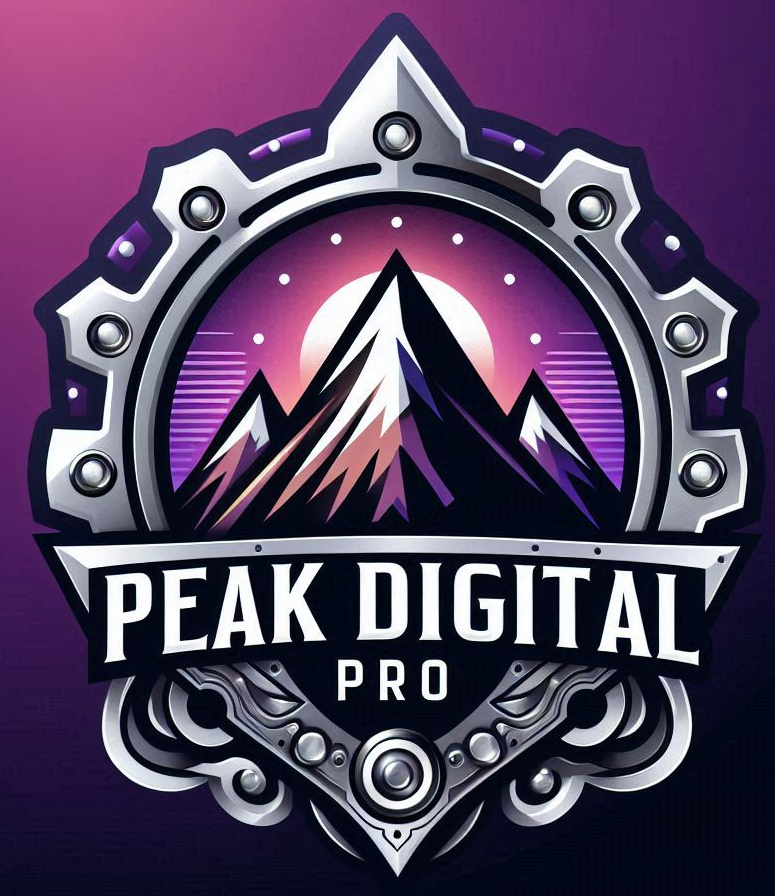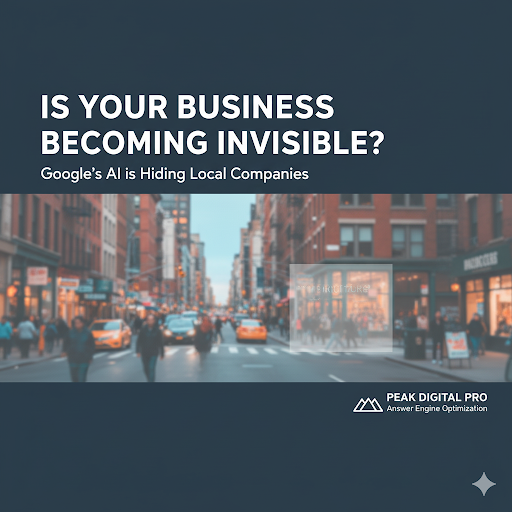Understanding Diversity in Marketing for Business Growth
Diversity in marketing means more than just checking a few boxes. Brands that practice authentic inclusion are seeing results way beyond expectations. Companies with diverse leadership are shown to be 33 percent more likely to outperform their competitors financially . Most think diversity in marketing is just a feel-good move for optics, but the real surprise is how much it can transform genuine customer loyalty and drive business success in ways most brands totally overlook.
Table of Contents
Quick Summary
| Takeaway | Explanation |
|---|---|
| Diversity enhances customer connections. | Embracing genuine diversity fosters deeper relationships with consumers across various backgrounds, improving brand loyalty and engagement. |
| Cultural competence drives brand perception. | Companies that understand and address cultural nuances establish strong emotional connections and gain consumer trust. |
| Authentic representation avoids stereotypes. | Crafting marketing narratives that respect individual experiences helps enhance brand credibility and relevance in diverse markets. |
| Strategic inclusion is a business necessity. | Diversifying marketing strategies not only complies with ethical standards but also aligns with economic growth and market expansion. |
| Conduct internal assessment before strategies. | Organizations should evaluate their current diversity landscape to ensure authenticity in marketing messages and eliminate biases. |
Defining Diversity in Marketing: What Does It Mean?
Diversity in marketing represents a comprehensive approach to understanding and representing varied human experiences, perspectives, and identities within communication strategies and brand narratives. This concept goes far beyond simple demographic representation, encompassing a nuanced recognition of multiple dimensions of human difference.
Beyond Surface Level Representation
Marketing diversity is not merely about including people from different racial or ethnic backgrounds in advertisements. According to Frontiers in Psychology , true diversity involves understanding how different groups perceive and interact with marketing messages. The definition extends to incorporating varied perspectives that reflect authentic human experiences across:
- Gender identities
- Cultural backgrounds
- Age ranges
- Ability levels
- Socioeconomic experiences
- Sexual orientations
- Neurodiversity
Strategic Inclusion as a Business Imperative
Modern marketing diversity is not just an ethical consideration but a strategic business approach. Companies recognize that diverse representation leads to deeper customer connections and broader market understanding. Research demonstrates that marketing strategies embracing genuine diversity can:
- Increase brand loyalty
- Expand market reach
- Create more resonant communication
- Reflect complex societal realities
By moving beyond tokenistic representations and creating meaningful, nuanced narratives, brands can build more authentic relationships with diverse consumer groups. The goal is not just visibility but genuine understanding and respect for the multifaceted nature of human experience.
The Importance of Diversity in Marketing: Why It Matters
Marketing diversity transcends mere representation. It is a powerful strategic approach that directly impacts business performance, consumer engagement, and organizational credibility in an increasingly interconnected global marketplace.
Economic and Consumer Connection Dynamics
Business success increasingly depends on understanding and authentically connecting with diverse consumer segments. According to marketing research from OpenStax , diversity marketing involves intentionally identifying and meaningfully engaging diverse market subsegments through culturally responsive strategies.
Key economic drivers of diversity in marketing include:
- Rapidly changing demographic landscapes
- Increasing multicultural consumer purchasing power
- Growing consumer expectations for authentic representation
- Competitive advantages in emerging market segments
Cultural Competence and Brand Perception
Consumers are increasingly evaluating brands based on their commitment to genuine inclusivity. Companies that demonstrate true cultural understanding rather than superficial representation build stronger emotional connections with their audience.
This approach requires moving beyond traditional marketing paradigms and developing nuanced strategies that:
- Recognize individual cultural experiences
- Respect diverse communication preferences
- Validate multiple perspectives
- Create meaningful narrative representations
By prioritizing diversity, organizations transform marketing from a transactional communication tool into a platform for meaningful cultural dialogue and connection. The result is not just increased market share but deeper, more authentic relationships with consumers across varied backgrounds and experiences.
Below is a table summarizing the key drivers and outcomes of diversity in marketing, organizing economic incentives alongside consumer and brand-centric impacts for clarity.
| Key Driver or Outcome | Description |
|---|---|
| Changing Demographics | Rapidly evolving population makeup creates demand for broader, more inclusive messaging. |
| Multicultural Consumer Power | Increased spending power of diverse groups incentivizes cultural fluency in marketing efforts. |
| Authentic Representation Expectations | Consumers now expect brands to go beyond tokenism and represent lived experiences more accurately. |
| Market Expansion Opportunity | Diverse strategies help capture and engage new and emerging market segments. |
| Emotional Brand Connections | Authentic recognition of diversity leads to heightened emotional engagement and loyalty. |
| Competitive Advantage | Brands embracing diversity stand out and can outperform less-inclusive competitors financially. |
| Stronger Brand Reputation | Meaningful representation improves public perception and long-term trust in the company. |

How Diversity in Marketing Influences Consumer Behavior
Diversity in marketing profoundly shapes consumer perception, engagement, and decision making processes. It represents a sophisticated psychological mechanism through which brands create meaningful connections beyond traditional transactional relationships.
Psychological Mechanisms of Representation
Consumer psychology demonstrates that individuals gravitate towards brands that reflect their identities and experiences. According to Harvard Business Review research, when consumers see themselves authentically represented in marketing materials, they experience a deeper sense of psychological validation .
Key psychological drivers of consumer response include:
- Emotional resonance with brand narratives
- Sense of belonging and recognition
- Perceived brand empathy and understanding
- Trust in organizational values
- Increased perception of brand authenticity
Cognitive Processing and Brand Perception
Marketing diversity influences how consumers cognitively process brand information. When marketing messages demonstrate genuine cultural understanding, consumers engage more deeply with brand content. This engagement transforms marketing from a one-way communication channel into an interactive dialogue that respects individual experiences.
Consumers evaluate brands through complex cognitive filters that assess:
- Cultural sensitivity
- Authenticity of representation
- Depth of understanding beyond stereotypes
- Commitment to inclusive practices
- Alignment with personal values
By creating marketing strategies that genuinely reflect diverse human experiences, brands can transform consumer interactions from transactional exchanges to meaningful connections that transcend traditional demographic boundaries.
Key Concepts and Strategies for Implementing Diversity in Marketing
Implementing diversity in marketing requires a strategic, multifaceted approach that goes beyond surface level representation. Successful implementation demands intentional organizational commitment and sophisticated cultural understanding.
Foundational Organizational Assessment
Before developing diversity marketing strategies, organizations must conduct comprehensive internal evaluations. Research from McKinsey emphasizes that companies must first understand their current organizational diversity landscape to create authentic external messaging.
Key assessment areas include:
- Current workforce demographic composition
- Existing marketing representation practices
- Internal cultural competency levels
- Potential unconscious bias in communication channels
- Alignment between internal values and external messaging
Strategic Content Development Frameworks
Developing diverse marketing content requires moving beyond tokenistic representation toward genuine cultural understanding. Effective strategies involve:
- Collaborative content creation with diverse voices
- Comprehensive audience persona development
- Intersectional perspective integration
- Continuous learning and adaptation
- Regular external feedback mechanisms
Authentic representation means creating narratives that respect cultural nuances, avoid stereotypes, and provide genuine insight into varied human experiences. Organizations must invest in cultural competency training, engage diverse talent in content creation, and develop robust feedback systems that allow continuous refinement of marketing approaches.
Learn more about increasing online visibility through strategic, inclusive marketing practices that resonate with diverse audience segments.
Ready to Build Inclusive Marketing That Drives Real Growth?
If you recognize that authentic diversity is more than just a buzzword, you already understand the challenges. Bridging genuine representation to strategic business results is not easy. Many brands struggle to connect with today’s multifaceted audiences, risking lost trust and decreased visibility as AI-powered search changes how people find answers online. You need content and visibility strategies that move beyond surface representation and demonstrate real cultural understanding.

It’s time to transform your marketing into a growth driver that speaks to every customer you want to reach. With Peak Digital Pro , you can implement proven methods like content alignment, schema markup, and Answer Engine Optimization, all tailored to diverse and complex audiences. Ensure your narratives are chosen by AI search engines and real people. Discover more about increasing online visibility for Colorado businesses. Take your next step now to stay ahead of AI-driven disruption and show the marketplace your commitment to inclusion. Visit Peak Digital Pro to maximize your growth potential today.
Frequently Asked Questions
What does diversity in marketing mean?
Diversity in marketing refers to a comprehensive approach that represents varied human experiences, perspectives, and identities within brand narratives and communication strategies. It goes beyond surface-level demographic representation to encompass aspects like gender identities, cultural backgrounds, and socioeconomic experiences.
Why is diversity important for business growth?
Diversity in marketing is essential for business growth as it leads to deeper customer connections, enhances brand loyalty, and expands market reach. Companies that genuinely embrace diversity can create more resonant communication and effectively reflect complex societal realities.
How does diversity in marketing influence consumer behavior?
Diversity in marketing influences consumer behavior by creating a sense of psychological validation when individuals see themselves authentically represented. It fosters emotional resonance, belonging, and trust in brand narratives, thereby transforming transactional relationships into meaningful connections.
What are effective strategies for implementing diversity in marketing?
Effective strategies for implementing diversity in marketing include conducting comprehensive internal assessments, engaging diverse voices in content creation, integrating intersectional perspectives, and establishing continuous learning and feedback mechanisms to refine marketing approaches.








